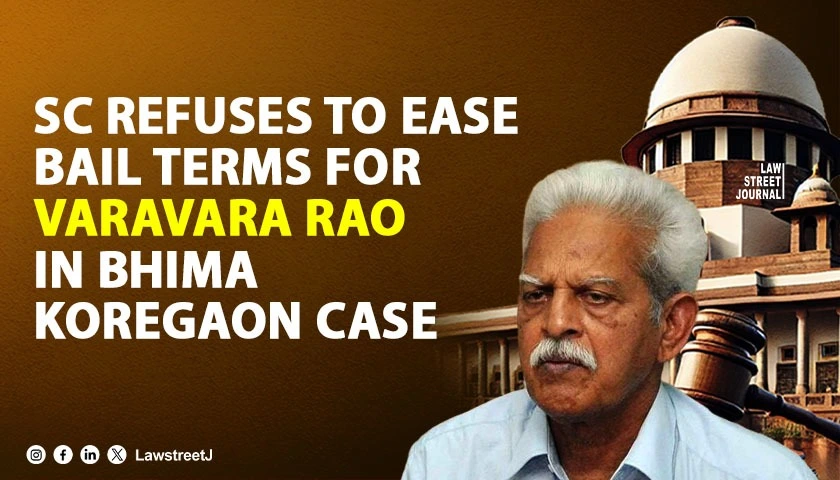NEW DELHI: The Supreme Court on Friday rejected a plea by activist and poet P Varavara Rao, arrested earlier under the Unlawful Activities Prevention Act in the 2018 Bhima Koregaon violence case in Maharashtra, for modification of his bail condition.
A bench of Justices J K Maheshwari and Vijay Bishnoi declined to entertain the plea by Rao, who sought modification of the condition, which required him to seek prior permission from the trial court if he wished to leave the Greater Mumbai area.
At the outset, the bench said it was not keen to modify the bail condition.
Upon hearing submissions, the court dismissed the matter as withdrawn.
Senior advocate Anand Grover, on behalf of Rao, contended that his client has been out on bail for over three years, but his health was deteriorating.
He contended that Rao got a pension of Rs 50,000 but had to spend Rs 76,000 per month. In Telangana, he got free health services, but in Greater Mumbai, he had to spend money on health facilities every time, the counsel said.
“The government will take care of his health, or go to the same court. We are not interested," the bench said.
Grover submitted that Rao's wife used to take care of him earlier, but she has shifted to Hyderabad, and there was no one to look after him at present and the trial is also not likely to be completed anytime soon.
In August 2022, the court granted bail to Rao on medical grounds, having noted that he was 82 years old and he had been in custody for two and a half years.
The court had clarified that this bail was purely on medical grounds and the order would not be a precedent for the cases of other accused or the appellant itself on merits.
The court had ordered Rao not to leave the jurisdiction of Mumbai "without express permission of the trial court."
The Telugu poet was arrested on 28 August 2018, from his home in Hyderabad and was an under-trial in the Bhima Koregaon case in which an FIR was lodged by the Pune Police at Vishrambagh Police Station on January 8, 2018, under various sections of the IPC and several provisions of the Unlawful Activities Prevention Act (UAPA).
Disclaimer: This content is produced and published by LawStreet Journal Media for informational purposes only and does not constitute legal advice. The views expressed are independent of any legal practice of the individuals involved.

















